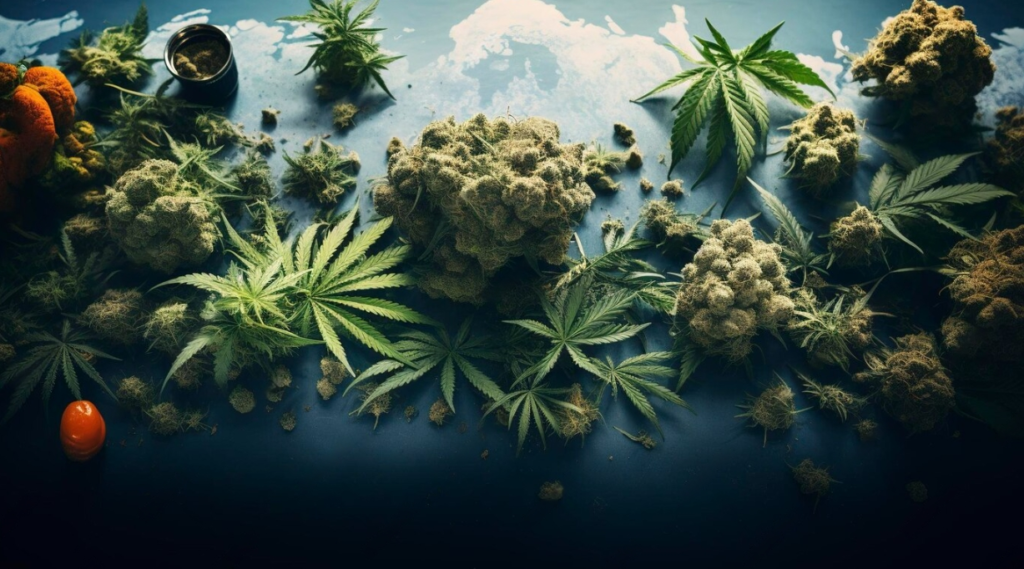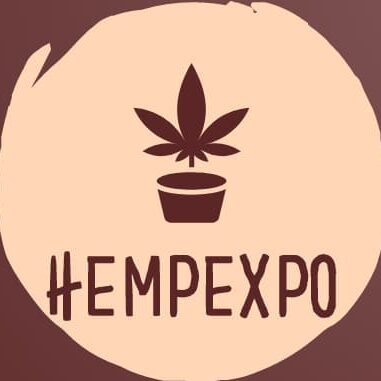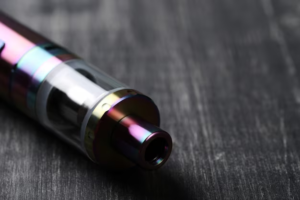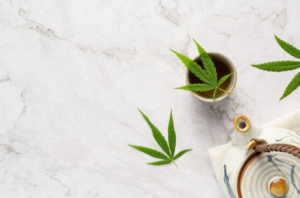
In the modern era, the allure and intrigue surrounding CBD have witnessed an unparalleled rise. This spike in interest is notably seen among medical cannabis users, mainly due to CBD’s non-psychoactive nature, which differentiates it from other cannabis compounds. While its popularity continues to grow on a global scale, the European viewpoint on CBD remains cautious and somewhat ambivalent. This hesitancy, combined with its escalating recognition, underscores the overarching uncertainty surrounding its legal standing and the specific conditions governing its usage. Each country seems to offer its own unique set of legal stipulations regarding CBD, creating a patchwork of regulations that are often difficult to navigate.
One primary source of confusion in this complex legal landscape is the inconsistent data related to the THC content in CBD products. THC concentration plays a pivotal role in determining the legal status of any CBD product. This inconsistency in information and regulations leads to a considerable amount of uncertainty, potential misinterpretation, and even skepticism among potential users and regulators alike.
Through this article, our goal is to provide a comprehensive overview of the intricate legal considerations surrounding CBD use.
CBD vs. Cannabis: A Comparison
Venturing into the realm of hemp-based products and understanding their legal nuances requires a clear differentiation between CBD and marijuana, two constituents derived from the Cannabis Sativa plant. Hemp, a versatile variant of the Cannabis Sativa plant, boasts a wide range of applications. It’s not only used for weaving due to its robust fibres but also finds prominence in the culinary world as an oil. The seeds of the hemp plant, replete with protein, are also a favored choice for bird feed.
Marijuana, distinct from hemp, comprises the dried flowers of the female Cannabis Sativa plant. This form is rich in THC, along with an array of other cannabinoids. THC, being a potent compound, triggers sensations such as relaxation, heightened pleasure, and an intensified sensory experience, often altering perceptions of time and space. It also has the potential to amplify one’s appetite. CBD, on the flip side, stands as a stark contrast. Also known as cannabidiol, CBD is an isomer of THC and is primarily extracted from hemp. Unlike THC, CBD doesn’t plunge its consumers into a psychedelic journey. Instead of causing intoxication, it tempers THC’s effects, ensuring balance.

The discovery of CBD traces back to Dr. Roger Adams from the University of Illinois in 1940. Yet, it wasn’t until 1963 that scientists delved deep into its structural dynamics. Historically, the medicinal prowess of hemp was a topic of discussion predominantly within the medical community. The broader population often held misconceptions or exhibited skepticism. With technological advancements and the evolution of communication mediums, the world started glimpsing CBD’s therapeutic potential. Heartwarming accounts like that of Charlotte Figi, who found relief from epilepsy through CBD, spotlighted its potential in addressing a gamut of ailments ranging from post-traumatic stress disorder to chronic sleep disturbances. However, it’s pivotal to acknowledge that, in numerous regions worldwide, marijuana for recreational use continues to be under the legal scanner.
Understanding CBD Laws and Guidelines
The intricate laws surrounding CBD products are deeply intertwined with the THC concentration present within them. THC, or Tetrahydrocannabinol, is the psychoactive compound commonly found in marijuana that’s responsible for its euphoric effects. Consequently, while numerous countries have started recognizing the potential benefits of CBD and have made it permissible, they remain wary of THC’s psychoactive properties. This wariness translates into stringent regulations against the possession and use of recreational marijuana.
The specifics of these regulations, however, can be as varied as the nations themselves. Each country has formulated its unique stance based on a myriad of factors, including cultural perceptions, historical context, scientific research, and societal needs. In some regions, the focus might be on the potential therapeutic applications of CBD, while in others, concerns about misuse or the cultural implications of marijuana might dominate the discourse. As such, for anyone considering the use or sale of CBD products, understanding the nuances of these diverse regulations becomes paramount.
| Country | THC Limit and Additional Information |
| Poland | THC < 0.3% |
| Germany | THC < 0.2% |
| Austria | THC < 0.3% |
| The Netherlands | THC < 0.2% – Above this limit, it is considered a pharmaceutical product |
| France | THC 0.3% |
| Belgium | THC < 0.2% – Prescription required |
| UK | THC < 0.2% – Only as a dietary supplement |
| Northern Ireland | THC < 0.2% |
| Southern Ireland | THC 0.00% |
| Iceland | No legal regulations concerning CBD, but strict marijuana laws |
| Spain | THC < 0.2% – For external use only |
| Portugal | On prescription |
| Luxembourg | THC < 0.3% |
| Switzerland | THC < 1% |
| Greece and North Macedonia | THC < 0.2% |
| Czech Republic | THC < 1% |
| Hungary | THC < 0.2% |
| Malta | Legal marijuana for personal use |
| Georgia | THC 0.3% |
| Cyprus | THC < 0.3% |
| Romania | THC < 0.2% – For medical use only |
| Slovenia | THC < 0.2% |
| Slovakia | Illegal |
| Italy | THC < 0.6% |
| Croatia | THC < 0.2% |
| Bulgaria | THC < 0.2% |
| Norway | THC 0.00% |
| Sweden | THC 0.00% |
| Denmark | THC < 0.2% – Prescription required |
| Finland | THC < 0.2% – Prescription required |
| Estonia | THC < 0.2% |
| Lithuania | True hemp cultivation is legal, but the status of CBD products is very unclear |
| Latvia | THC < 0.2% |
The Netherlands is known for its liberal stance, where both CBD and THC are allowed. Here, CBD products with THC levels up to 0.05% are permitted. Any product with a higher concentration is deemed medicinal and can only be sold in designated places. In contrast, Belgium mandates prescriptions for these products.
Norway allows CBD only if it has no THC. In 2019, Sweden deemed CBD products with any THC concentration as narcotics, making its laws among the strictest. Ireland permits CBD production with THC levels below 0.2%; however, only products without THC are approved for consumption.
Slovakia outright bans CBD in any concentration. Italian regulations fluctuate between penalizing and decriminalizing, but currently, the nation has authorized CBD products with THC concentrations under 0.6%, showcasing a more lenient approach.
The European Union’s 1997 regulation introduced the term “novel food.” This category encompasses products that weren’t available in the food market before May 15, 1997. To market such items, approval from the European Commission is required. As per Regulation 2015/2283, extracts from fibre hemp (those with elevated CBD concentrations) fall under this classification.
In Poland, CBD governance is dictated by the Act on Counteracting Drug Addiction (2005), the Act on the Reimbursement of Medicines and Special Nutritional Foods and Medical Devices (2011), and an announcement by the Chief Sanitary Inspector in 2018. The European Industrial Hemp Association (EIHA) facilitates cooperation among European hemp industries and related countries.
CBD Legality Around the World
| Country | THC Limit and Additional Information |
| Mexico | Full legalization of marijuana |
| Argentina | THC < 1% |
| Brazil | Concentrations of both CBD and THC must be limited to 30 mg/mL by Ministry of Health Regulation No. 344/98 |
| Chile | No legal authorization for industrial use. Only cultivation for medicinal purposes or personal use is regulated |
| Peru | THC < 1% |
| Costa Rica | Unclear |
| Uruguay | THC < 1% (banned for foreigners) |
| Guatemala | Illegal |
| South Africa | THC < 0.2% (South Africa’s example was also followed by Nigeria, Benin) |
| Virgin Islands | THC < 1% |
| Australia | THC < 0.3% – Pharmacy sales |
| New Zealand | Prescription required |
| Israel | THC 0.00%; very unclear status, may entail consequences |
| Turkey | THC 0.00%; very unclear status, may entail consequences |
| Egypt | THC 0.00%; very unclear status, may entail consequences |
| Hong Kong | THC 0.00% (no possibility to export it) |
| Japan | THC 0.00% |
| China | Unclear |
| South Korea | Only on medical order and under clinical conditions |
| India | Unclear |
| Belize | THC < 1% |
| Thailand | THC < 0.02% |
| Belarus | Illegal |
| Russia | Cultivation is legal, CBD products are illegal |
| Ukraine | THC 0.00% |
| US | 0.3% or less THC – Federally legal |
| Zimbabwe | THC < 1% |
| Ecuador | THC < 1% |
| Malawi | THC < 1% |
In the 1980s, New Zealand took the progressive step of removing CBD from its list of banned narcotics, reflecting an evolving understanding of its therapeutic benefits. However, even with this acknowledgment, the nation maintains caution. To bring CBD into the country, one needs a valid prescription from a medical professional. Heading to Australia, we find another nuanced approach. Here, any CBD product is expected to have a THC concentration below the 0.05% threshold to be considered legal. Additionally, these products don’t sit on regular pharmacy shelves; they bear the tag of ‘specialized medicinal products’ and are dispensed only with a doctor’s prescription.
Israel, a nation renowned for its advanced CBD research, marked a significant shift in its drug policies by decriminalizing hemp-derived products in 2017. This move signaled a broader acceptance of medicinal marijuana. However, the country’s legal panorama regarding CBD remains shadowed by the ongoing debates and confrontations between the Health Ministry and the police forces. Interestingly, while the law hints at a permissive view on CBD, the recreational use of marijuana sees a different narrative. Authorities tend to turn a blind eye to individuals consuming marijuana recreationally, provided they uphold certain societal decorum.
Asia, with its diverse cultures and strict regulatory frameworks, showcases a spectrum of stances on CBD. Countries like Japan, South Korea, and Singapore have imposed stringent restrictions, mirroring their conservative views on psychoactive substances. Thailand, though, emerges as a beacon of change by allowing the use of CBD in specific regions. India’s relationship with hemp and CBD remains enigmatic, as hemp plants, deeply rooted in spiritual traditions, are often linked to the god Shiva and play a role in various religious ceremonies. Meanwhile, Hong Kong adopts a zero-tolerance policy towards THC; although CBD is recognized, it’s strictly monitored, ensuring THC levels remain at a precise 0.00%, and products with THC cannot be exported. In stark contrast, South American countries exhibit a more liberal and adaptive approach to CBD regulations, reflecting the continent’s progressive tilt in understanding and utilizing this compound.

Countries Where CBD is Legal
As the global perspective on CBD shifts, understanding the intricacies of laws surrounding its use becomes crucial, especially given the vast differences across nations. In Europe, a continent with varying perspectives on cannabis, countries like Poland, Germany, Austria, and France have embraced CBD, permitting products with THC limits usually below 0.3%. Notably, the Netherlands, known for its liberal stance on cannabis, allows THC limits up to 0.2% for CBD products.
Meanwhile, the Czech Republic exhibits even greater leniency, setting the bar at 1%. The UK’s regulations differentiate CBD as a dietary supplement, allowing THC levels up to 0.2%, a standard mirrored by Northern Ireland. Many of Europe’s members, ranging from Spain to Estonia, tend to hover around the 0.2% THC threshold. However, there are exceptions:
Switzerland and Italy have adopted more generous limits of 1% and 0.6%, respectively. But it’s not all progressive: nations like Slovakia have opted for a zero-tolerance policy, outright banning CBD. Shifting our gaze globally, Mexico stands out with its progressive step of fully legalizing marijuana. In contrast, countries like Argentina, Uruguay, Belize, Zimbabwe, Ecuador, and Malawi have formulated regulations that allow CBD products with a THC content capped at 1%. Further away, both Australia and the US have settled on a THC threshold of 0.3% for legal CBD products.
Countries Where CBD is Illegal
Navigating the maze of CBD regulations, one quickly realizes the vast disparities in attitudes and laws across the globe. New Zealand, despite recognizing the potential benefits of CBD, mandates a prescription for its importation. Neighboring Australia, while permitting CBD, has stringent guidelines demanding the THC content to remain below 0.05%. Furthermore, Australian authorities categorize CBD as a specialized medicinal product, thus necessitating a doctor’s prescription.
Israel, a nation at the vanguard of CBD and cannabis research, presents a paradox. Although the nation started decriminalizing certain hemp derivatives in 2017, internal governmental conflicts render the legal landscape ambiguous.
Asia, a continent steeped in tradition and cultural norms, has countries like Japan, South Korea, and Singapore adopting a conservative approach to CBD, enforcing strict regulations. In Hong Kong’s bustling streets, CBD might be visible, but the region’s laws are clear: CBD products must have an absolute 0.00% THC content, and exporting THC-infused items is forbidden. India, a country where hemp has religious connotations, remains on the fence, its laws a reflection of its cultural duality. Shifting to South America, while most nations exhibit a flexible approach to CBD, there are stark exceptions such as Guatemala where CBD continues to be outlawed.
Conclusion
The legal landscape of CBD across countries remains a tapestry of diverse and, at times, conflicting regulations. With CBD’s increasing popularity and recognized therapeutic benefits, it becomes pivotal for nations to develop clear, concise, and consistent regulations regarding its use and production. The distinctions between CBD and THC, as well as hemp and marijuana, serve as foundational knowledge in understanding these legal nuances.
As the world becomes more cognizant of CBD’s potential benefits and its differentiation from psychoactive THC, the hope is for a more harmonized legal framework. For now, those looking to use or market CBD products must remain astutely aware of the specific regulations in each country and region. The evolving dynamics of CBD laws suggest a journey towards a more informed and accepting global stance, but until then, discretion and knowledge are paramount.





